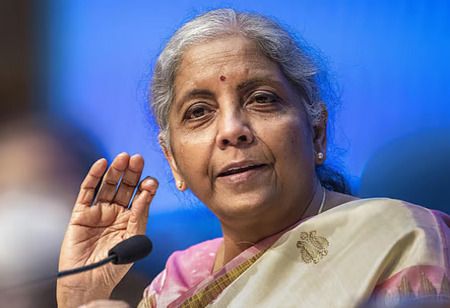
FM Stresses Regulations Must Encourage Innovation Responsibly


Finance Minister Nirmala Sitharaman stressed the importance of creating regulations that encourage technological innovation in a responsible way, especially regarding artificial intelligence, instead of hindering its progress.
She stated that the government is committed to not only embracing AI technologies but also guaranteeing their ethical implementation throughout different industries, during the launch of the report titled 'AI for Viksit Bharat: The Opportunity for Accelerated Economic Growth'.
"We do not want regulations that literally wipe out technology itself. We want regulations because we want a responsible application," she said after releasing the report prepared by Niti Aayog here.
Also Read: L&T Energy GreenTech to Set Up India's Largest Green Hydrogen Plant
"AI is a rapidly progressing, real-time, dynamic thing, and therefore all of us will have to be conscious that we don't sit back on ethics as AI can also have its challenges," she said.
She further mentioned that the challenge extends beyond employment concerns to include potential misuse that could negatively impact society.
Also Read: Amazon Replaces Android, Pathways of Independence from Bigtechs' OS
The report indicates that forecasts suggest AI will generate numerous new positions while simultaneously eliminating many current jobs, especially in administrative, repetitive, and lower-skilled areas.
India faces a dual challenge of developing a workforce equipped with sophisticated digital and AI capabilities to seize emerging opportunities, while also ensuring that displaced workers find meaningful employment through retraining, reassignment, or integration into other expanding economic sectors.
The report emphasized that increases in productivity and innovation need to align with market development to generate economic growth, noting that India must concurrently strengthen domestic consumption while enhancing its involvement in international supply chains.
This approach necessitates coordinating industrial and commercial policies, especially given the rapid evolution of global regulatory frameworks.
Also Read: The Sun Tzu Way of Ladder Ascender to Industry Leader
As an example, the report mentioned that the European Union's AI Act will gradually implement requirements for general-purpose and high-risk artificial intelligence systems, while emerging climate-focused trade policies like carbon border taxes will influence market entry requirements.